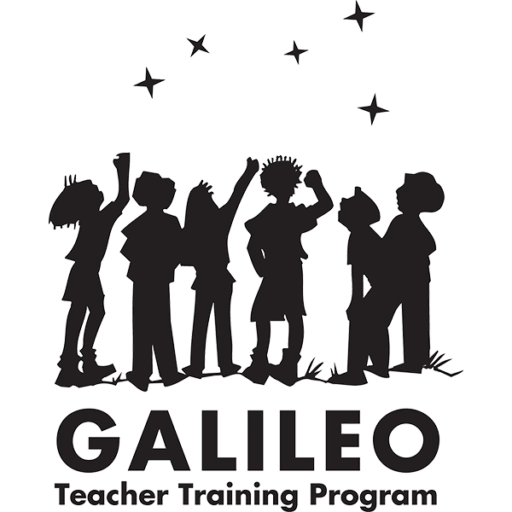We are announcing 3 new Comenius and Gruntvig training events for June and July of 2013. This training events are open to everyone but there is funding from the Comenius Agencies to teachers in Europe. The deadline for applicaiton is JANUARY 16, 2013.
Universe Quest – Building Games for Education (in partnership with Learnit3D)
Astronomy@MyBackPAck
Astronomy@MyPC
In order to participate in these training events you need to fill the pre-registration form. We will send you a certificate or your pre-registration. With this document you have to apply to your national Comenius and Gruntvig Agency. If you succeed in your application you have to let us know (geral@nuclio.pt) or (info@galileoteachers.org) as soon as possible in order to confirm your participation and give you further information related to the course payment and other practical details. The deadline to apply for funds in your national agency is JANUARY 16, 2013 !! This training events can be funded if you have a national representative for Comenius/Gruntvig Programme (only European Countries)
You may find useful information on how to formalize your participation with you national Comenius/Gruntvig Agency here –> useful tips
_______________________________
More information about the courses:
The main objective of these programs is to introduce educators in the use of new methodologies for science teaching based in the use o modern tools and resources that rely on recent advances of science. The training events were prepared for an adult audience with interest in new methodologies to address science and science related topics using as a guideline real research examples, namely in the field of Astronomy and Space Research.

Universe Quest – Building Games for Education – A training event promoted in partnership with Learnit3D (http://www.learnit3d.com/)
Course Reference Numbers:
Comenius – PT-2013-105-001 (for teachers)
http://ec.europa.eu/education/trainingdatabase/index.cfm?fuseaction=DisplayCourse&cid=34442
Gruntvig – PT-2013-106-001 (for adult trainers)
http://ec.europa.eu/education/trainingdatabase/index.cfm?fuseaction=DisplayCourse&cid=35681
Date: June 17th to June 21st , 2013
Location: New Castle upon Tyne – UK
This training event is based in new methodologies to address science and science related topics using as a guideline: Educational Games, Scientific Illustration and Astronomy. Games for education are considered nowadays one of the Holy Grail for engaging students and inspiring them in science topics. ICT and games are part of their daily lives and its pedagogical capability is overwhelming. The main objective of this training is to prepare teachers and adult trainers in the use of serious games for education and to provide practical examples of its power for addressing real data handling (Research Based Science Education) while promoting the learning of different science topics in a learn by doing approach.
The team of educators for this training event was carefully selected to address the different topics in a deep but also pedagogical approach. The design of the programme includes lectures followed by theoretical practical sessions and practical sessions where the participants will have the opportunity to hear about modern knowledge and challenges involved in each area of expertise. Field trips to visit historical places and to observe the night sky are also contemplated in the training. The approach that will be used in this training was successfully implemented in several education venues promoted by University of California at Berkeley, Learnit 3D (experts in games for education) and the Galileo Teacher Training Programme. Some pictures available here: Universe Quest Album
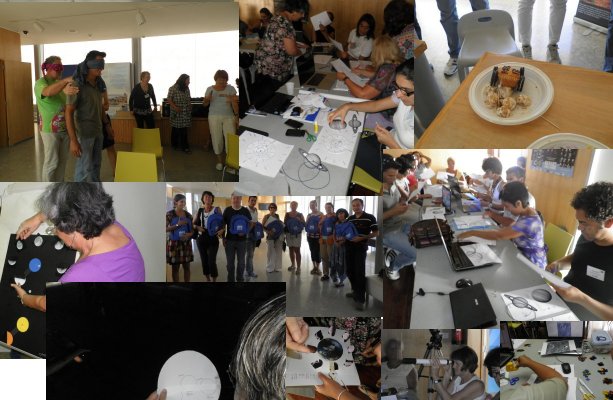
Astronomy@MyBackPack
Course Reference Numbers:
Comenius – PT-2013-104-002 (for teachers)
http://ec.europa.eu/education/trainingdatabase/index.cfm?fuseaction=DisplayCourse&cid=35672
Gruntvig – PT-2013-109-002 (for adult trainers)
http://ec.europa.eu/education/trainingdatabase/index.cfm?fuseaction=DisplayCourse&cid=35675
Date: July 15th to 19th , 2013 – Location: Portugal – Centro de Interpretação Ambiental da Pedra do Sal em São Pedro do Estoril – Cascais
Date: July 29thto August 2nd , 2013 – Location: Greece – Universit of Thessaly – Volos (In parallel with the International Astronomical Olympiads and Global Hands-on Universe 2013).
The advent of free science content on the web opened a whole new area for science education. Students can now learn mathematics, physics, geography, chemistry and other subjects while using real astronomy and space data, available for free on the internet. Participants will be introduced to an efficiently and well tested methodology that relies on the use of such resources to tackle school curriculum content. The programme is built to address the needs of schools ranging from easy access to computers and internet to those still not reached by these devices. The methodology is based in an IBSE approach and range from the manipulation of databases to the construction of observing devices using readily available material. This training curriculum can also be used as a tool to bridge the digital divide enabling a graceful transition from paper technology to digital format. The material was carefully chosen for their flexibility to be applied in different levels of difficulty and age. This training event is a partnership between GTTP and Universe Awareness (www.unawe.org), a programme devote to inspire young children for the beauty of the Universe.
The team of educators for this training event was carefully selected to address the different topics in a deep but also pedagogical approach. The design of the programme includes lectures followed by theoretical practical sessions and practical sessions where the participants will have the opportunity to hear about modern knowledge and challenges involved in each area of expertise. Field trips to visit historical places and to observe the night sky are also contemplated in the training. The approach that will be used in this training was successfully implemented in several education venues promoted in Portugal under the scope of Discover the Cosmos training events and GTTP training session. Some pictures available here: Astronomy@MyBackPack 2012
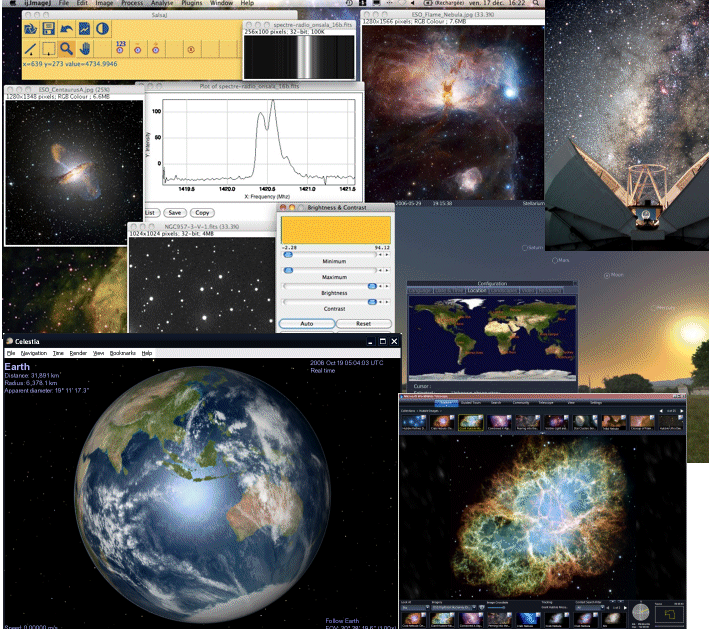
Astronomy@MyPC
Course Reference Numbers:
Comenius – PT-2013-103-002 (for teachers)
http://ec.europa.eu/education/trainingdatabase/index.cfm?fuseaction=DisplayCourse&cid=34440
Gruntvig – PT-2013-108-002 (for adult trainers)
http://ec.europa.eu/education/trainingdatabase/index.cfm?fuseaction=DisplayCourse&cid=35671
Date: July 8th to 12th , 2013 – Location: Finland – Turku University
Date: July 29thto August 2nd , 2013 – Location: Greece – Universit of Thessaly – Volos (In parallel with the International Astronomical Olympiads and Global Hands-on Universe 2013).
This training program invests in ICT for science teaching using the inquiry based methodology. The main objective of this programme is to introduce educators in the use of new methodologies for science teaching. Themes are based in the use of modern tools and resources that rely on recent advances of science. The advent of free science content on the web opened a whole new area for science education. Students can now learn mathematics, physics, geography, chemistry and other subjects while using real astronomy and space data, available for free on the internet. Participants will be introduced to an efficiently and well tested methodology that relies on the use of such resources to tackle school curriculum content.. The methodology is based in an IBSE approach and range from the manipulation of databases to the construction of observing devices using readily available material. This training curriculum can also be used as a tool to bridge the digital divide enabling a graceful transition from paper technology to digital format. The material was carefully chosen for their flexibility to be applied in different levels of difficulty and age.

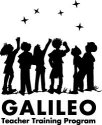

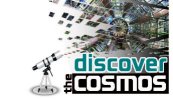
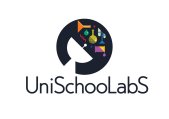
These training events are coorganized by NUCLIO , GTTP , Discover the Cosmos (bringing cutting edge science to schools across Europe) and UniSchooLabS ( a programme aimed to improve the quality of science education in Europe)
